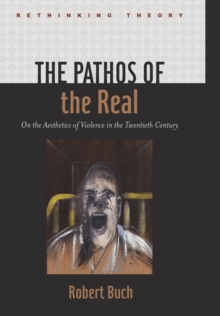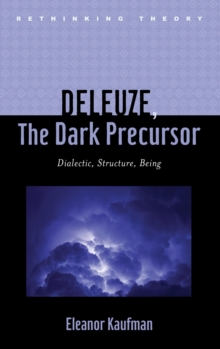
Bakhtin : Ethics and Mechanics Hardback
Edited by Valerie Z. Nollan
Part of the Rethinking Theory series
Hardback
Description
The early work of Mikhail Bakhtin is notable for its emphasis on questions in ethics and philosophy.
Focusing on these early writings, though also informed by Bakhtin's later works of the early 1970s, the authors in this volume explore the human and prosaic dimensions of ethical and moral dilemmas, whether in the philosophical concerns of the Young Hegelians, the iconography and implicit doctrine of Christian redemption in Dostoevsky's ""Crime and Punishment"", in testimonial accounts of political martyrs in Latin America, or in the nationalist features of Russian Village Prose.
Incorporating a variety of disciplinary backgrounds into their essays, including theatre arts, philosophy, history, women's studies, Latin American literature and Russian literature, the authors take Bakhtin's ethics, as articulated in his writings of 1919-1929, and extend them into areas of thought that themselves enter into fruitful dialogue with his theoretical positions, endeavouring at all times to remain cognizant of both Russian and Western views of Bakhtin.
The essayists' interactions attest to the productivity of any thoughtful encounter with Bakhtin's work and to the transformational nature of his work's impact on the myriad disciplines that it affects.
Bakhtin's thought exerted a profound, systematic influence on many areas of knowledge as they have been configured in the 20th century and, as this volume demonstrates, promises to do the same for the 21st century.
Information
-
Out of Stock - We are unable to provide an estimated availability date for this product
- Format:Hardback
- Pages:128 pages
- Publisher:Northwestern University Press
- Publication Date:18/03/2004
- Category:
- ISBN:9780810116719
Information
-
Out of Stock - We are unable to provide an estimated availability date for this product
- Format:Hardback
- Pages:128 pages
- Publisher:Northwestern University Press
- Publication Date:18/03/2004
- Category:
- ISBN:9780810116719










